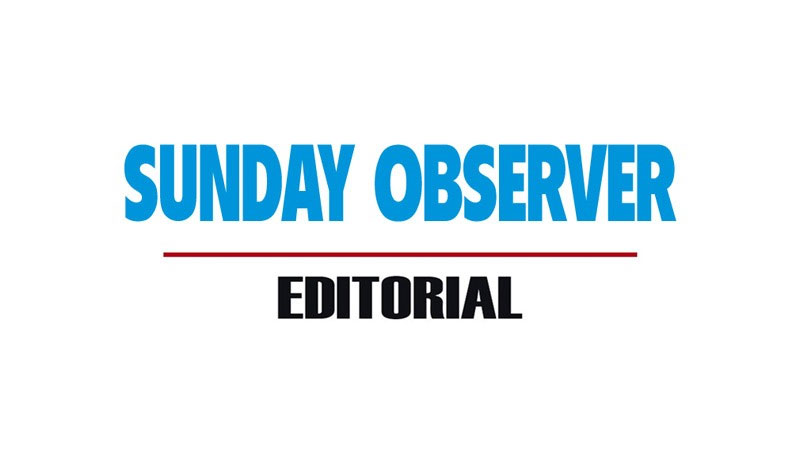Nationalisation was in vogue in the 1950s and 1960s, not only in Sri Lanka but also in developed Western countries. The premise behind nationalisation is that the State should be in control of main utilities and services to provide a better service to the public. This was socialism or communism in action, even though many Western countries such as the UK and Germany also followed this doctrine at that time.
Today, the tables have turned and even some of the most staunchly Communist countries such as Russia, China and Vietnam have embraced the concept of private enterprise. They have realised that the State is not equipped to engage in certain businesses.
Yet, the leaders of countries such as Sri Lanka, caught in the headwinds of patriotism in the 1950s and 1960s, deemed that every sector from oil to education should be run by the State, giving rise to State-Owned Enterprises (SOEs). They chased out well established foreign companies such as Shell and Caltex from our shores and handed that business over to the Ceylon Petroleum Corporation (CPC).
In fact, before being unceremoniously booted out, Shell wanted to build Asia’s biggest refinery in Sri Lanka. It has since gone to Singapore, where the refinery business is valued at over US$ 60 billion. And here in Sri Lanka, we are grappling with a total foreign debt that is just US$ 10 billion less than this figure. This illustrates the price we had to pay for ejecting well-established private and foreign investments from the country.
The story of almost every SOE from SriLankan Airlines to the CPC is a familiar one. Weighed down by excess staff (most of whom are political appointees with no proper qualifications), tainted with corruption at every level, trapped in debt and mired in inefficiency, they have become a huge burden to the State and by extension, to the public. Actually, the sorry state of SOEs contributed heavily to the economic downfall Sri Lanka faced in 2022.
The Government led by President Ranil Wickremesinghe has decided to restructure most of the SOEs to turn them into profit-making entities and reduce the burden on the public. President Wickremesinghe has always been a staunch advocate for a private sector-led economy and reiterated that the State should have no hand in business. The restructuring process could take several forms – Public-Private Partnerships (PPP), outright privatisation/sale of assets or reforming the said institutions whilst still being under (at least 51 percent) Government control.
However, the delay in reforming the SOEs, a key plank of the International Monetary Fund’s (IMF) recommendations for Sri Lanka, has become a cause for worry among financial analysts and economists. Advocata Institute Chief Executive Officer (CEO) Dhananath Fernando, addressing a recent media briefing on the ‘Taxpayer burden and the urgency of SOE reform,’ revealed that 52 SOEs have reported a staggering cumulative loss of Rs.744.6 billion in 2022 according to the annual reports of the Ministry of Finance and Inland Revenue Department (IRD).
“If the loss is divided by the number of the population, each citizen should pay Rs.33, 000 each year to recover this loss. Whoever is in power, the restructuring of SOEs is a must,” Fernando said.
The United National Party (UNP) led by President Wickremesinghe has made its stance on SOE reform very clear. Other parties vying for the Presidency and Parliamentary power, including the Sri Lanka Podujana Peramuna (SLPP), Sri Lanka Freedom Party (SLFP), Samagi Jana Balawegaya (SJB) and the National People’s Power (NPP) must also reveal whether they intend to reform or restructure the SOEs. In tandem, they should also disclose their stance on the IMF program itself.
We have seen plenty of examples of how SOE reform can benefit the country. SriLankan Airlines was a striking example – it made considerable profits during the period when it had a strategic partnership with the United Arab Emirates (UAE)-based Emirates, one of the world’s leading airlines.
Once the airline was taken over by the Government again over a dispute with its expatriate CEO, it rapidly went into a nosedive after unqualified persons took the helm, losing hundreds of millions of dollars per year. The Government is again seeking strategic partners or investors for the ailing airline. We can take the cue from neighbouring India, which privatised the once equally moribund Air India, now undergoing a process of rejuvenation under the management of Tata.
This process should be expedited, as the country cannot afford to be saddled with a loss-making airline for many years to come. Likewise, all other SOEs that are due for restructuring in one way or the other must undergo that process without any undue delay.
Of course, the Government should still retain full control over some services such as Sri Lanka Railways (SLR) and the Sri Lanka Transport Board (SLTB), both vital cogs in the economy. Even in capitalist countries such as the United States (Amtrak) and Germany (Deutsche Bahn), the railways are Government-owned. But even in these cases, losses should be minimised through efficient management practices. SOE reform or privatisation per se may not be a panacea for all economic ills, but it is one of the best options for growth and progress.




